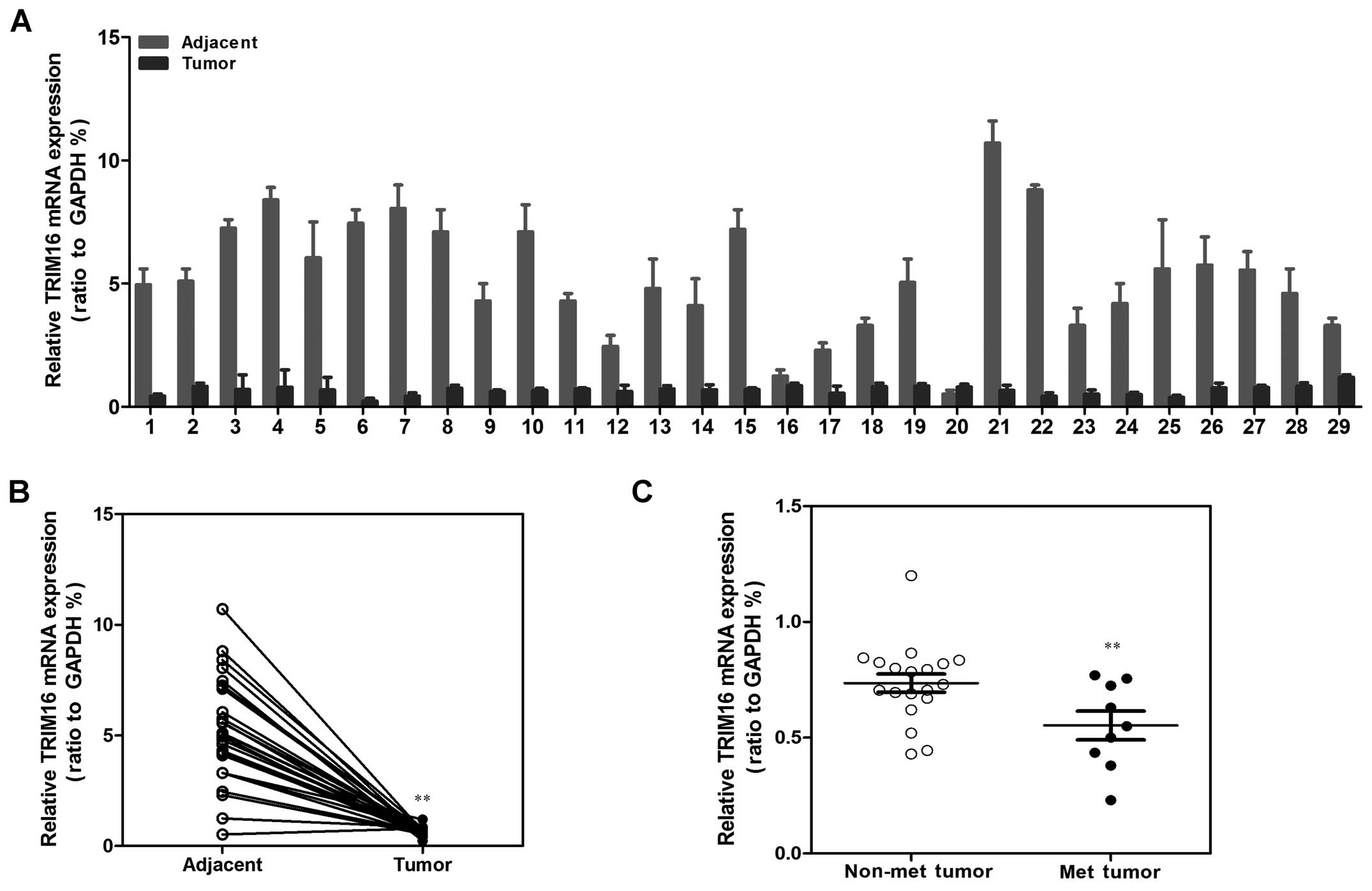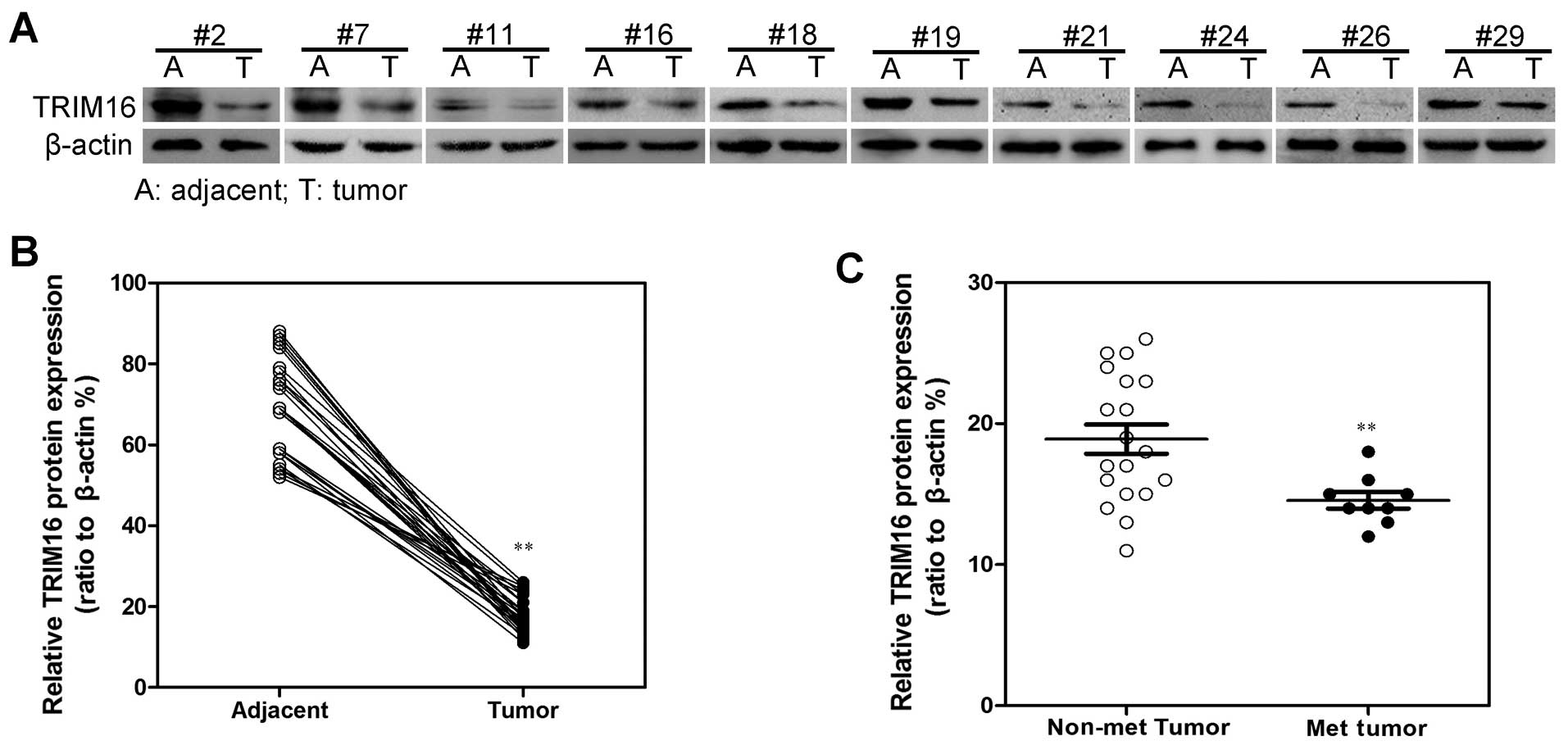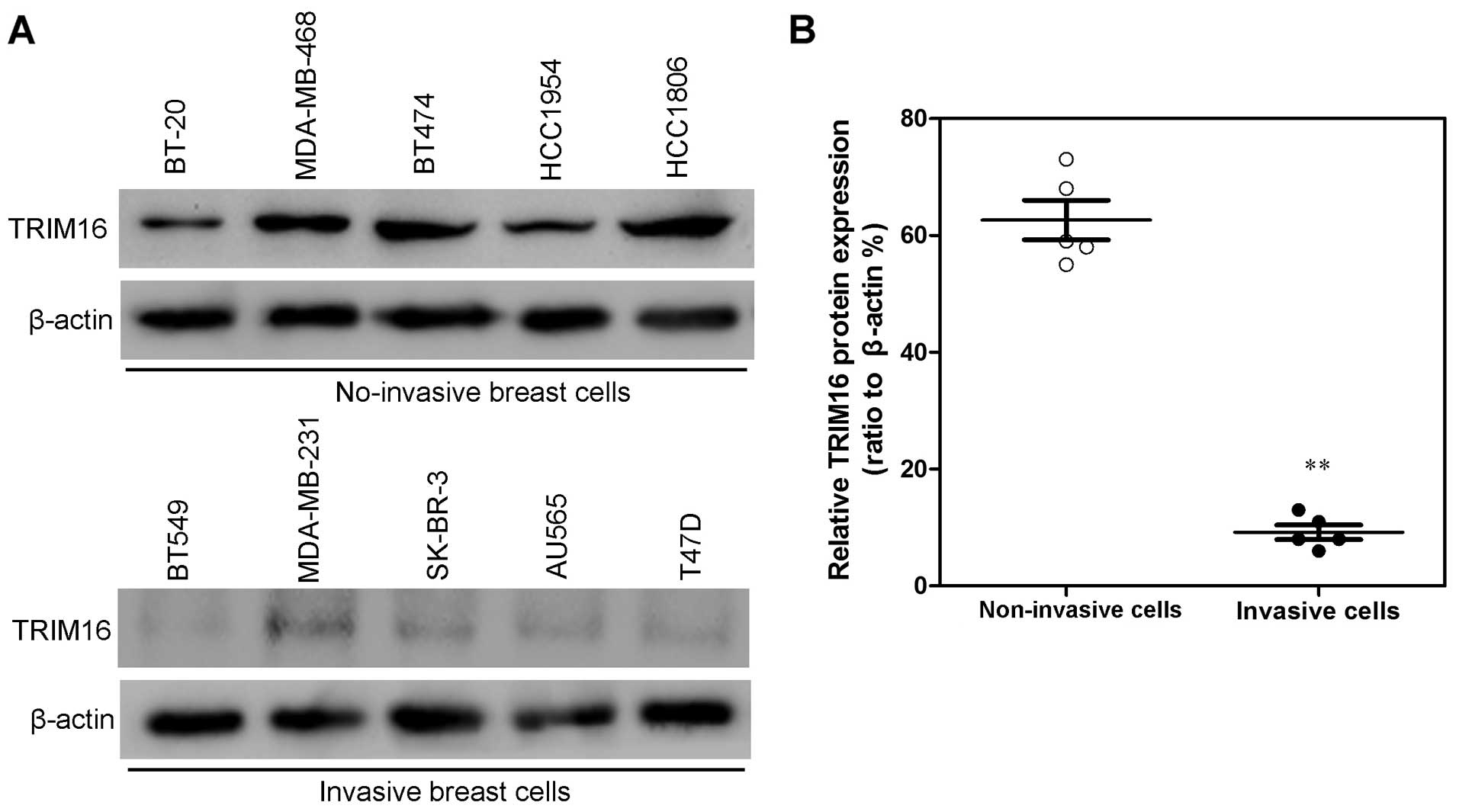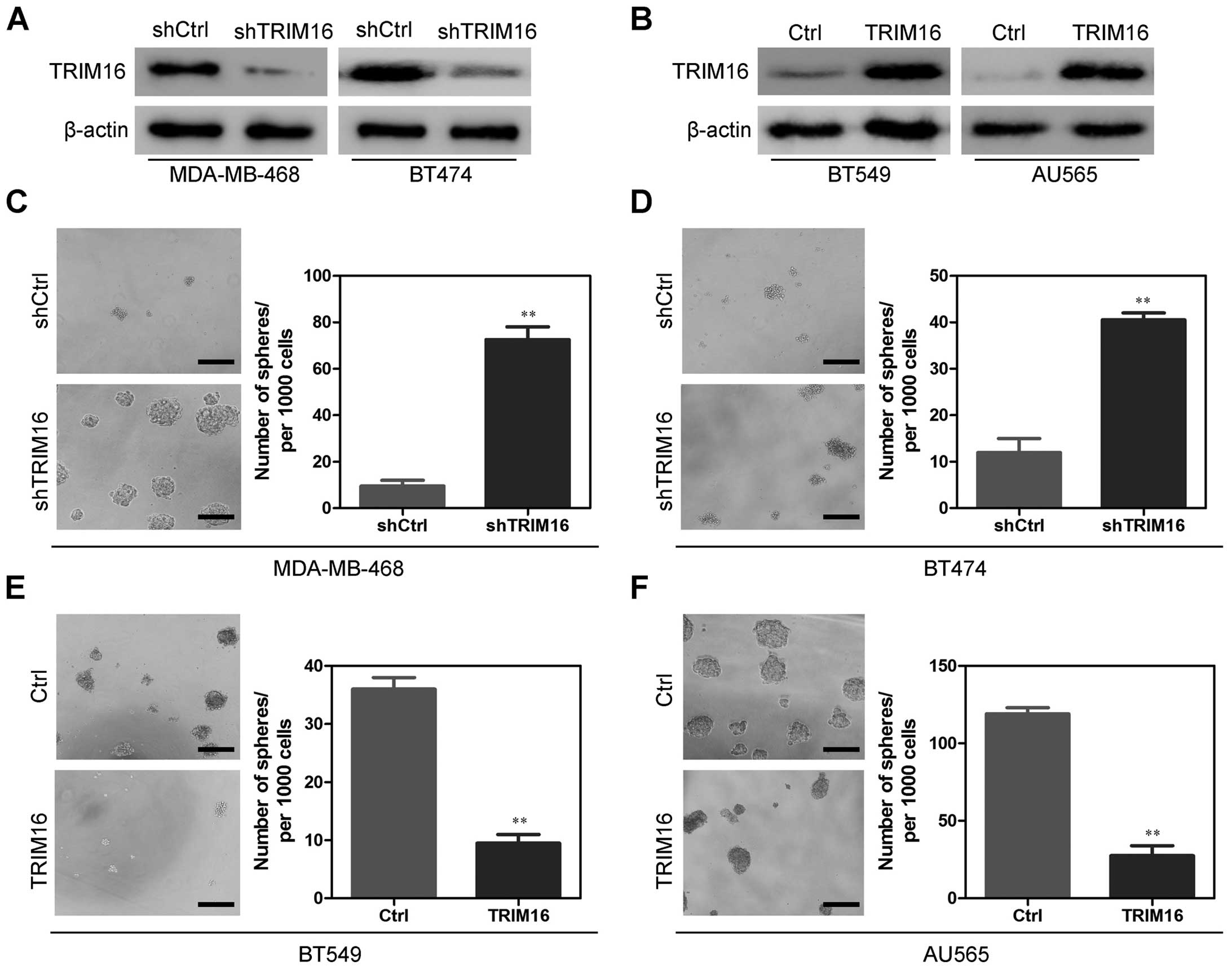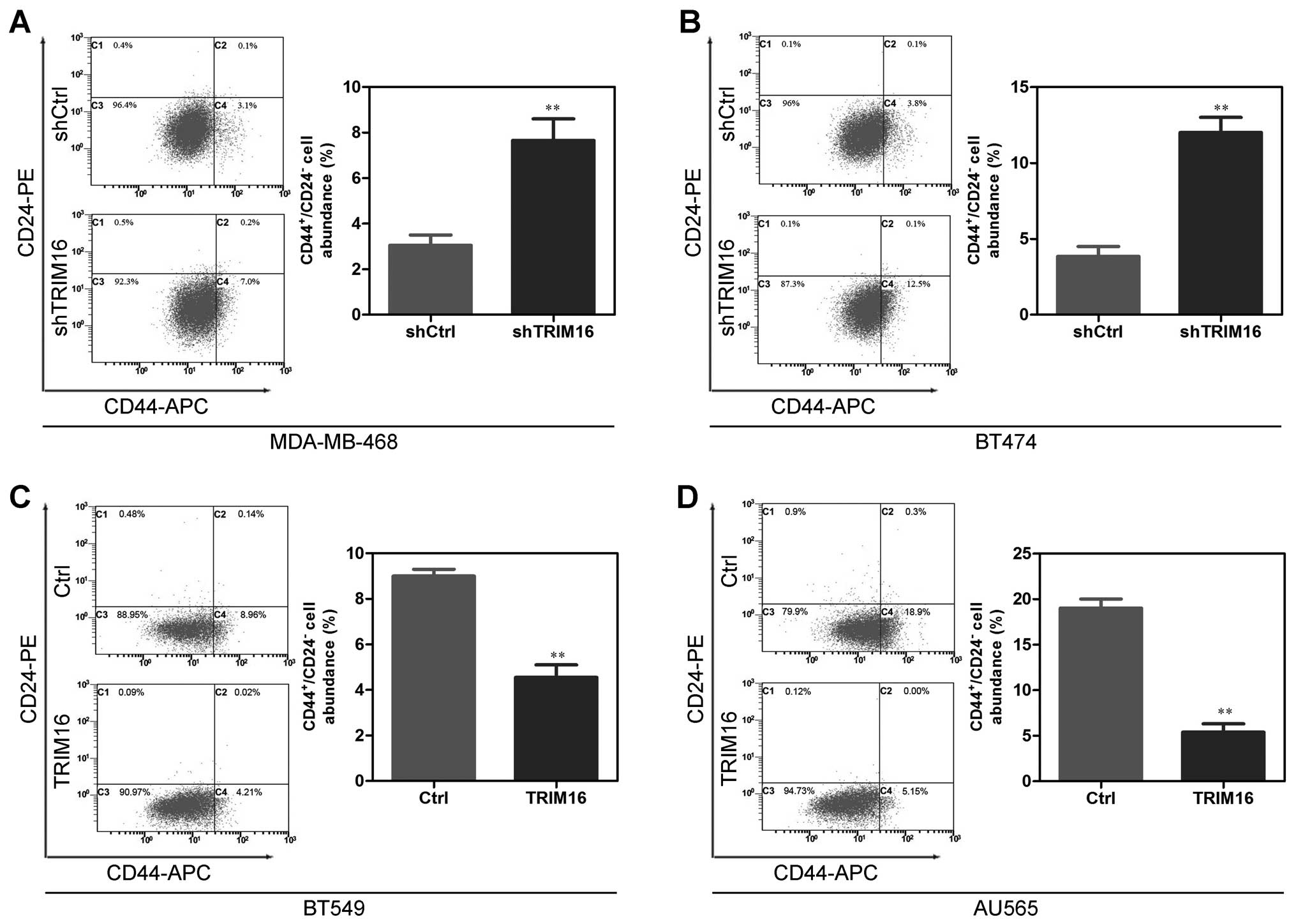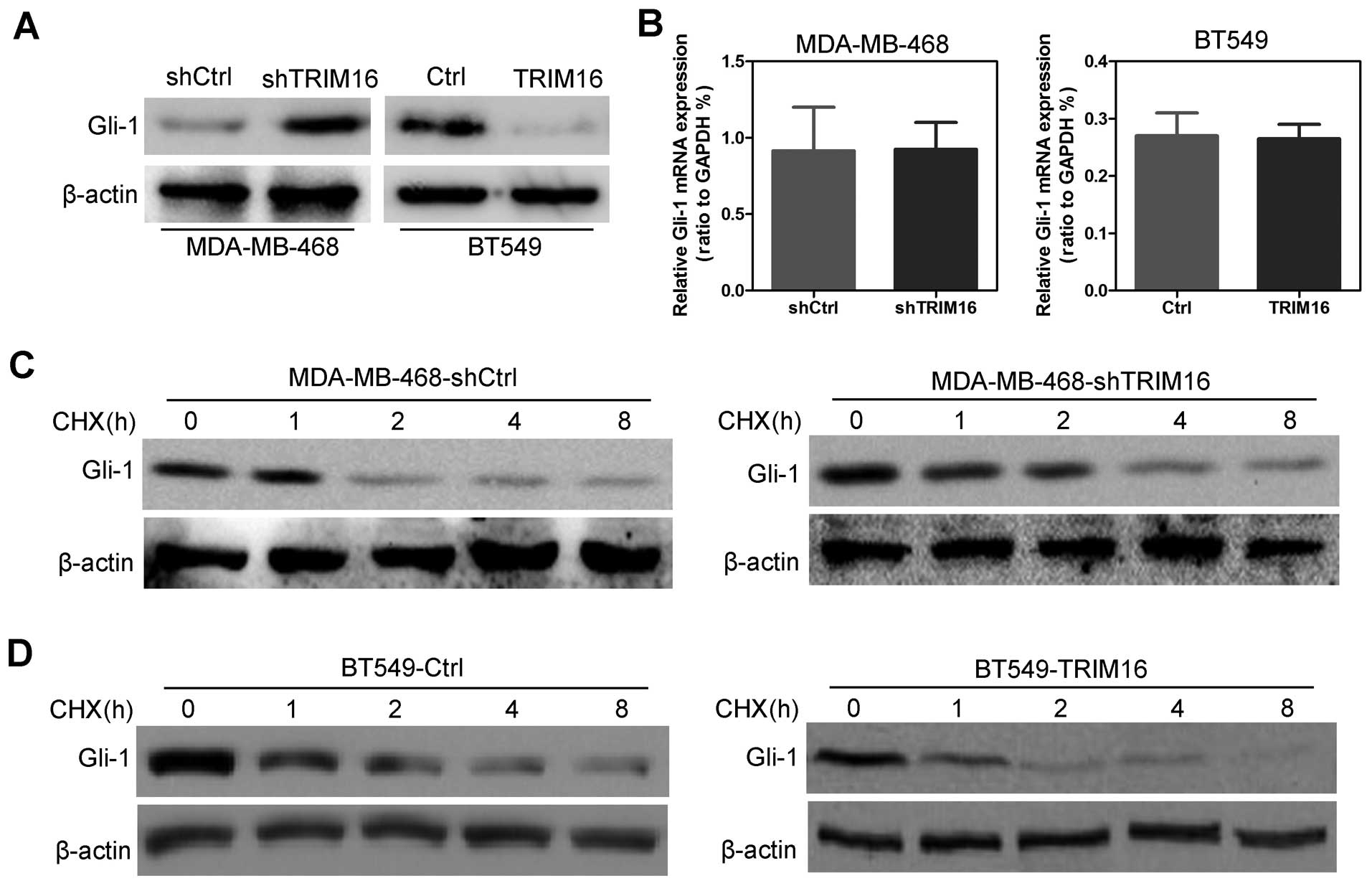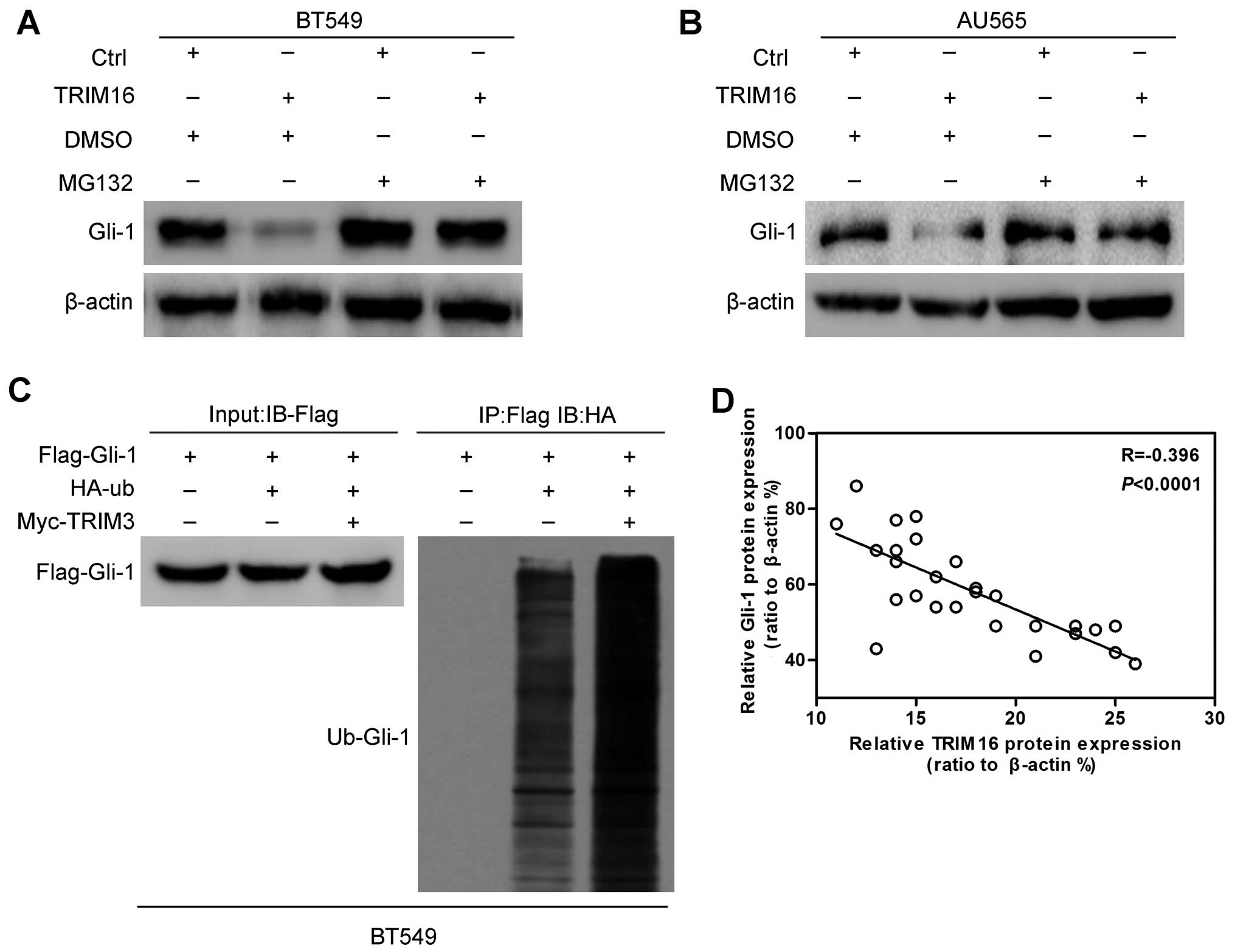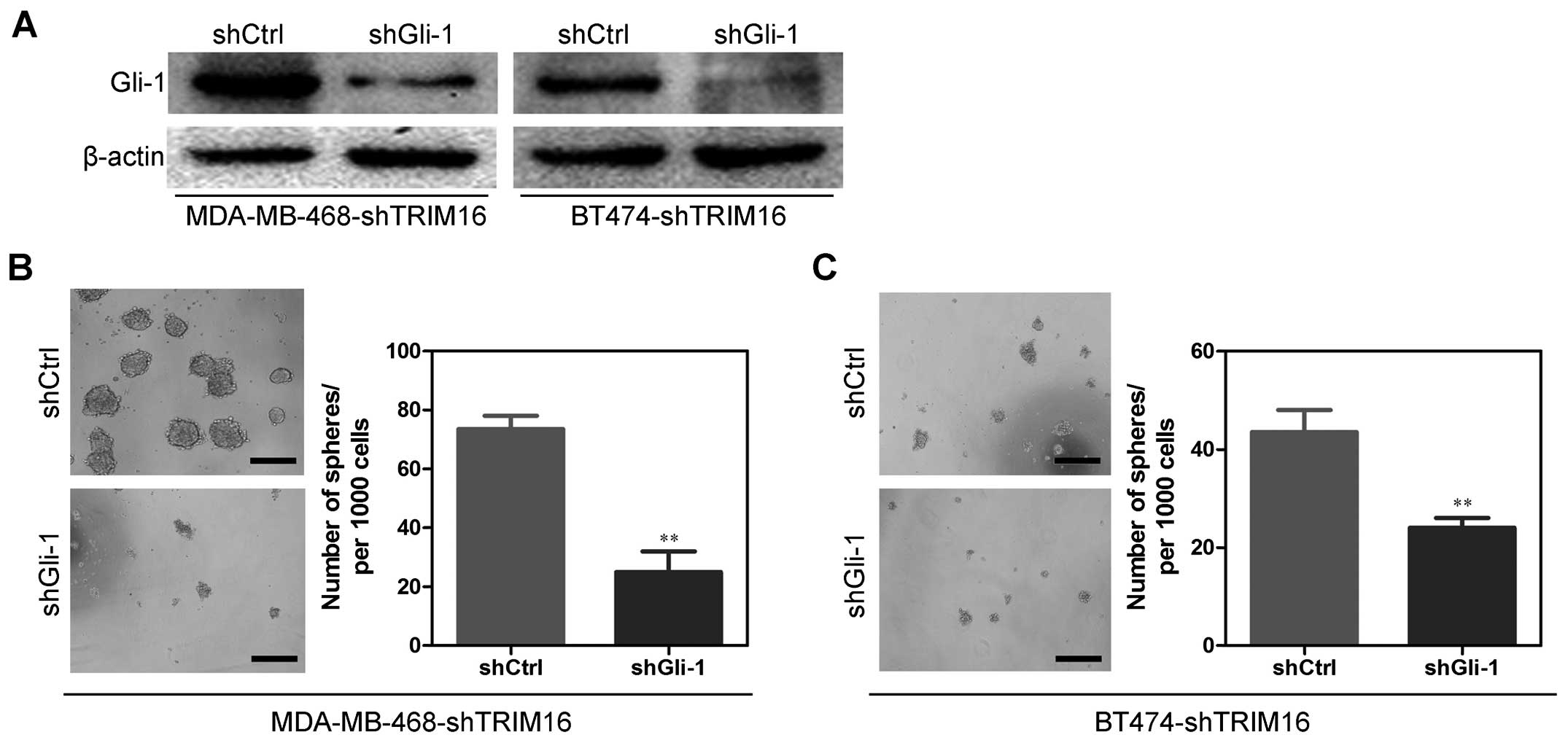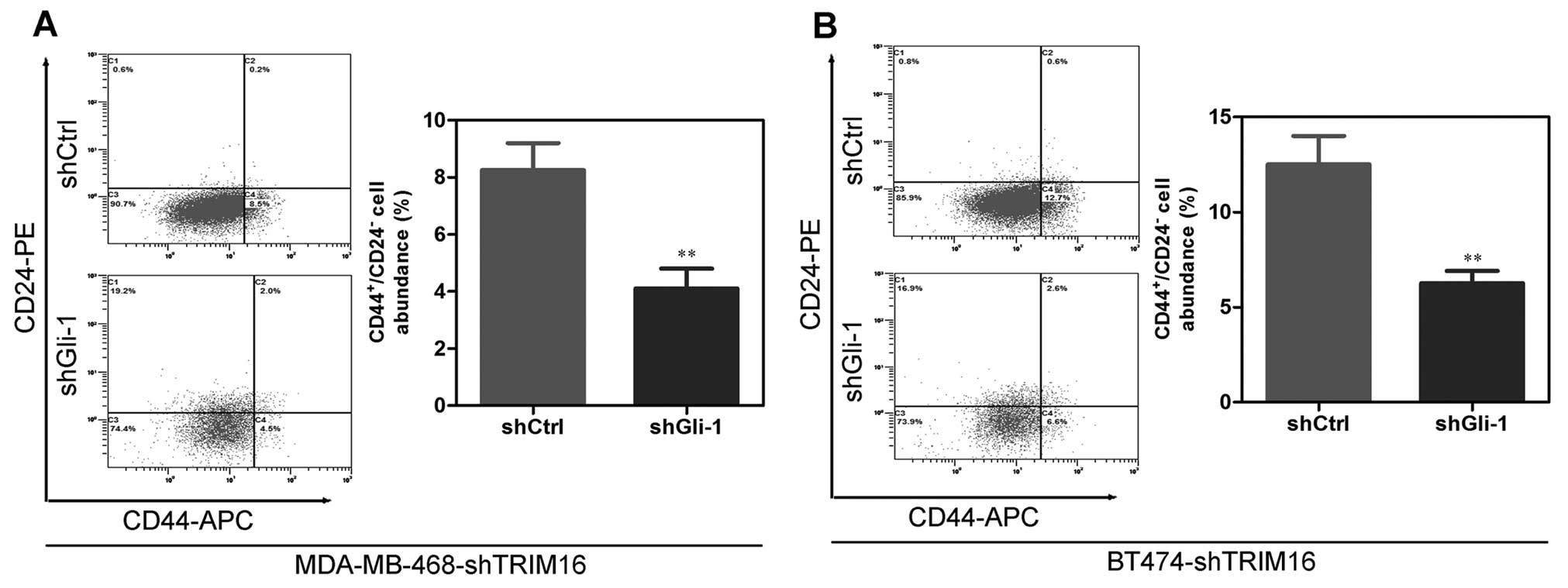|
1
|
Han YK, Lee JH, Park GY, Chun SH, Han JY,
Kim SD, Lee J, Lee CW, Yang K and Lee CG: A possible usage of a
CDK4 inhibitor for breast cancer stem cell-targeted therapy.
Biochem Biophys Res Commun. 430:1329–1333. 2013. View Article : Google Scholar
|
|
2
|
Oon ML, Thike AA, Tan SY and Tan PH:
Cancer stem cell and epithelial-mesenchymal transition markers
predict worse outcome in metaplastic carcinoma of the breast.
Breast Cancer Res Treat. 150:31–41. 2015. View Article : Google Scholar : PubMed/NCBI
|
|
3
|
Huo X, Li S, Shi T, Suo A, Ruan Z and Yao
Y: Tripartite motif 16 inhibits epithelial-mesenchymal transition
and metastasis by down-regulating sonic hedgehog pathway in
non-small cell lung cancer cells. Biochem Biophys Res Commun.
460:1021–1028. 2015. View Article : Google Scholar : PubMed/NCBI
|
|
4
|
Marshall GM, Bell JL, Koach J, Tan O, Kim
P, Malyukova A, Thomas W, Sekyere EO, Liu T and Cunningham AM:
TRIM16 acts as a tumour suppressor by inhibitory effects on
cytoplasmic vimentin and nuclear E2F1 in neuroblastoma cells.
Oncogene. 29:6172–6183. 2010. View Article : Google Scholar : PubMed/NCBI
|
|
5
|
Sutton SK, Koach J, Tan O, Liu B, Carter
DR, Wilmott JS, Yosufi B, Haydu LE, Mann GJ, Thompson JF, et al:
TRIM16 inhibits proliferation and migration through regulation of
interferon beta 1 in melanoma cells. Oncotarget. 5:10127–10139.
2014. View Article : Google Scholar : PubMed/NCBI
|
|
6
|
Kim PY, Rahmanto AS, Tan O, Norris MD,
Haber M, Marshall GM and Cheung BB: TRIM16 overexpression induces
apoptosis through activation of caspase-2 in cancer cells.
Apoptosis. 18:639–651. 2013. View Article : Google Scholar : PubMed/NCBI
|
|
7
|
Wang Y, Wen M, Kwon Y, Xu Y, Liu Y, Zhang
P, He X, Wang Q, Huang Y and Jen KY: CUL4A induces
epithelial-mesenchymal transition and promotes cancer metastasis by
regulating ZEB1 expression. Cancer Res. 74:520–531. 2014.
View Article : Google Scholar :
|
|
8
|
Sun Y, Wang Y, Fan C, Gao P, Wang X, Wei G
and Wei J: Estrogen promotes stemness and invasiveness of
ER-positive breast cancer cells through Gli1 activation. Mol
Cancer. 13:1372014. View Article : Google Scholar : PubMed/NCBI
|
|
9
|
Wang Y, Zhang P, Liu Z, Wang Q, Wen M,
Wang Y, Yuan H, Mao JH and Wei G: CUL4A overexpression enhances
lung tumor growth and sensitizes lung cancer cells to erlotinib via
transcriptional regulation of EGFR. Mol Cancer. 13:2522014.
View Article : Google Scholar : PubMed/NCBI
|
|
10
|
Kotiyal S and Bhattacharya S: Breast
cancer stem cells, EMT and therapeutic targets. Biochem Biophys Res
Commun. 453:112–116. 2014. View Article : Google Scholar : PubMed/NCBI
|
|
11
|
Wang Y, Liu Y, Lu J, Zhang P, Wang Y, Xu
Y, Wang Z, Mao JH and Wei G: Rapamycin inhibits FBXW7 loss-induced
epithelial-mesenchymal transition and cancer stem cell-like
characteristics in colorectal cancer cells. Biochem Biophys Res
Commun. 434:352–356. 2013. View Article : Google Scholar : PubMed/NCBI
|
|
12
|
Wu YC, Tang SJ, Sun GH and Sun KH: CXCR7
mediates TGFβ1-promoted EMT and tumor-initiating features in lung
cancer. Oncogene. Jul 27–2015.Epub ahead of print. View Article : Google Scholar
|
|
13
|
Wang B, Lee CW, Witt A, Thakkar A and Ince
TA: Heat shock factor 1 induces cancer stem cell phenotype in
breast cancer cell lines. Breast Cancer Res Treat. 153:57–66. 2015.
View Article : Google Scholar : PubMed/NCBI
|
|
14
|
Ghani FI, Yamazaki H, Iwata S, Okamoto T,
Aoe K, Okabe K, Mimura Y, Fujimoto N, Kishimoto T, Yamada T, et al:
Identification of cancer stem cell markers in human malignant
mesothelioma cells. Biochem Biophys Res Commun. 404:735–742. 2011.
View Article : Google Scholar
|
|
15
|
Li XX, Wang J, Wang HL, Wang W, Yin XB, Li
QW, Chen YY and Yi J: Characterization of cancer stem-like cells
derived from a side population of a human gallbladder carcinoma
cell line, SGC-996. Biochem Biophys Res Commun. 419:728–734. 2012.
View Article : Google Scholar : PubMed/NCBI
|
|
16
|
Bell JL, Malyukova A, Holien JK, Koach J,
Parker MW, Kavallaris M, Marshall GM and Cheung BB: TRIM16 acts as
an E3 ubiquitin ligase and can heterodimerize with other TRIM
family members. PLoS One. 7:e374702012. View Article : Google Scholar : PubMed/NCBI
|
|
17
|
Cheung BB, Bell J, Raif A, Bohlken A, Yan
J, Roediger B, Poljak A, Smith S, Lee M, Thomas WD, et al: The
estrogen-responsive B box protein is a novel regulator of the
retinoid signal. J Biol Chem. 281:18246–18256. 2006. View Article : Google Scholar : PubMed/NCBI
|
|
18
|
Bell JL, Malyukova A, Kavallaris M,
Marshall GM and Cheung BB: TRIM16 inhibits neuroblastoma cell
proliferation through cell cycle regulation and dynamic nuclear
localization. Cell Cycle. 12:889–898. 2013. View Article : Google Scholar : PubMed/NCBI
|
|
19
|
Chen G, Goto Y, Sakamoto R, Tanaka K,
Matsubara E, Nakamura M, Zheng H, Lu J, Takayanagi R and Nomura M:
GLI1, a crucial mediator of sonic hedgehog signaling in prostate
cancer, functions as a negative modulator for androgen receptor.
Biochem Biophys Res Commun. 404:809–815. 2011. View Article : Google Scholar
|
|
20
|
Xiong A, Wei L, Ying M, Wu H, Hua J and
Wang Y: Wwox suppresses breast cancer cell growth through
modulation of the hedgehog-GLI1 signaling pathway. Biochem Biophys
Res Commun. 443:1200–1205. 2014. View Article : Google Scholar : PubMed/NCBI
|
|
21
|
Szkandera J, Pichler M, Absenger G, Stotz
M, Weissmueller M, Samonigg H, Asslaber M, Lax S, Leitner G and
Winder T: A functional germline variant in GLI1 implicates hedgehog
signaling in clinical outcome of stage II and III colon carcinoma
patients. Clin Cancer Res. 20:1687–1697. 2014. View Article : Google Scholar : PubMed/NCBI
|















